🎉 Holiday Promo! Get Study Guides for 10+ WASSCE Texts — Just ₦5,000 (July 27 – Sept 18)
Cemetery Road (2009) is Esiaba Irobi’s posthumous winner of 2010 NLNG Prize for Literature. It is a politically charged play that critiques the widespread corruption in Nigerian society, the continuing influence of foreign powers on Africa’s affairs, and the ongoing struggle between the privileged few and the oppressed majority.
Summary of Cemetery Road
Cemetery Road by Esiaba Irobi is a play that follows Dr. Mazeli Anyanwu, a passionate university lecturer and dramatist, who dares to challenge the systemic rot within Nigeria’s political and academic institutions.
He collaborates with two BBC journalists to document the atrocities committed against the Kudingi people, an ethnic group displaced and massacred by the Nigerian government, through the medium of drama performance.
However, Mazeli soon discovers that the foreign journalists are more interested in sensationalising African poverty than exposing real injustices. He seizes the recording tape and refuses to release it. This infuriates the journalists.
The situation escalates when the BBC correspondent, Douglas, uses his influence to involve the Nigerian military. Predictably, the military government sides with the foreigners instead of protecting their citizen. The government begins a campaign of harassment and violence against Mazeli.
Meanwhile, Mazeli also wages war within the university. He confronts Prof. Madubunjoala, a corrupt and perverted Head of Department who uses his position to exploit students and staff.
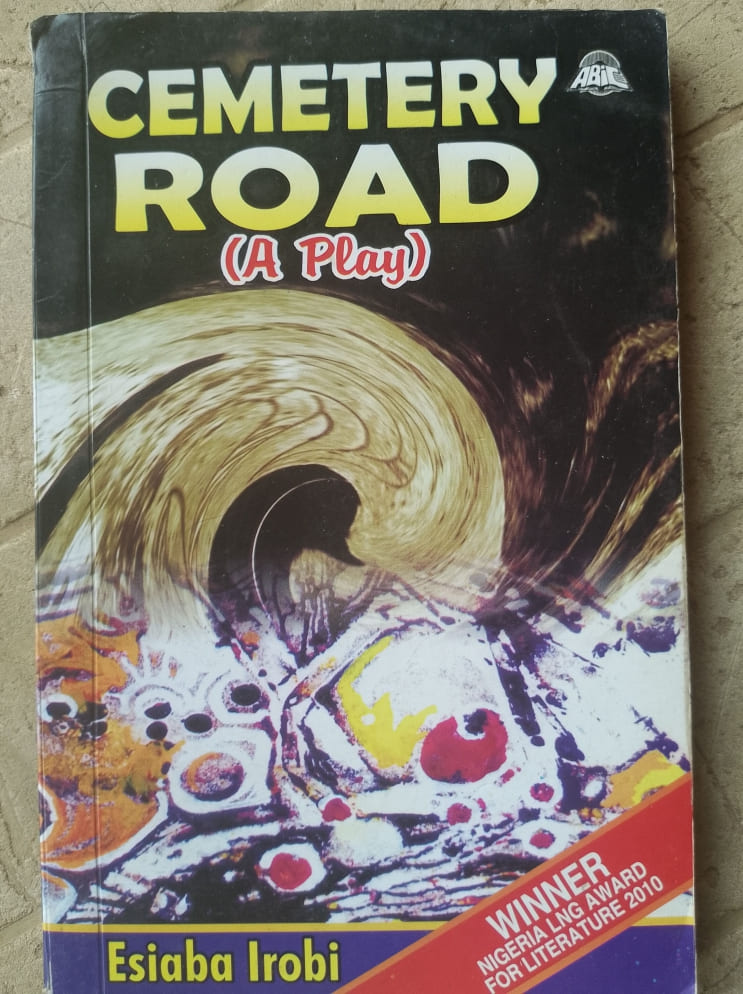
As pressure mounts, Mazeli is arrested and tortured by the military, only to be released through the intervention of his old friend, Lawani, now a top government security officer. But the release is hollow. They inject Mazeli with a slow-killing poison.
With nothing left to lose, Mazeli plans to assassinate the president during a scheduled drama performance. Lawani tries to stop him, and in the ensuing struggle, Mazeli is accidentally killed by his friend.
News of his death sparks outrage, and students lynch Lawani in retaliation.
Main Characters in Cemetery Road
Dr. Mazeli Anyanwu: He is the protagonist of the play. He is a university lecturer in Dramatic Arts and a committed dramatist who deeply cares about truth, justice, and the dignity of his people. Mazeli embodies integrity and resistance in a corrupt society. Mazeli refuses to be silent or complicit in the face of injustice. When he learns that the British journalists want to distort the story of the Kudingi people—focusing on poverty rather than their actual suffering—he breaks the contract and refuses to cooperate. This act of defiance sets the conflict in motion. His efforts to expose the truth lead to harassment, torture, and ultimately his death which consequently fans the embers of resistance among his students.
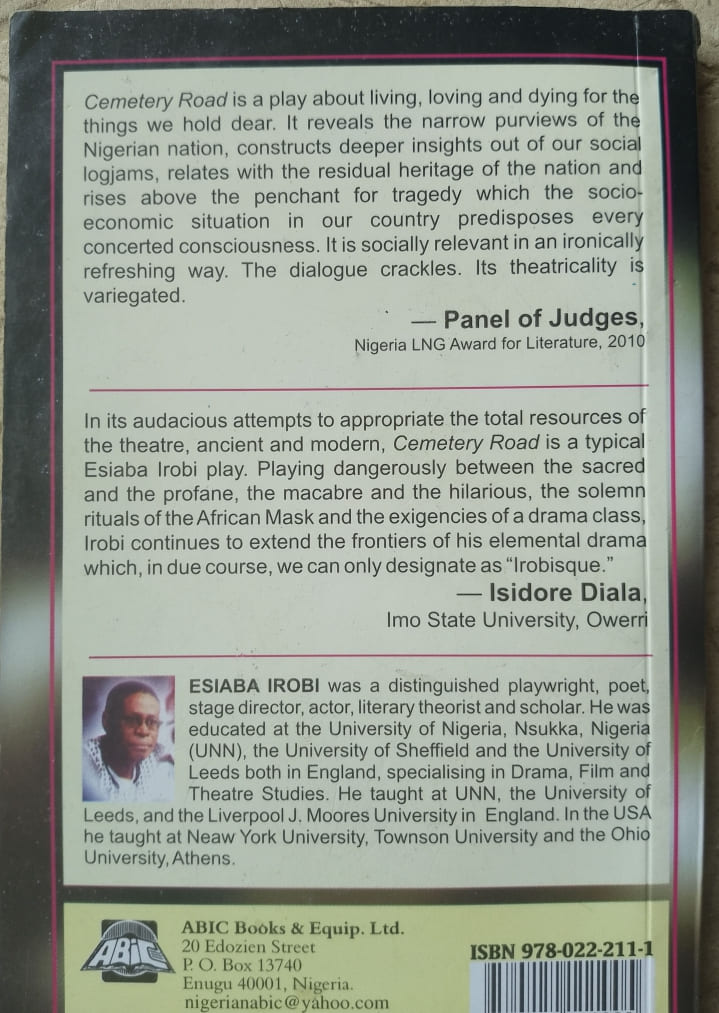
Prof. Madubunjoala: He is a professor of drama and the corrupt Head of Department at the university. Madubunjoala represents the corrupt leadership class in Nigerian institutions and its vainglorious, egoistic obsession with titles and hedonism. As Head of Department, he misuses his position for personal gain. He sexually harasses female students and staff, such as Fatima. He is threatened by Mazeli’s radical stance and the awakening of the students. His fear of losing control drives him to conspire with the military and other oppressive forces to silence Mazeli.
Douglas: He is a BBC Correspondent whose role exposes the problems of imperialist media narratives about Africa. He is manipulative and self-serving. Although he initially appears to collaborate with Mazeli to tell the true story of the Kudingi people, Douglas’s real interest is in portraying Africa as a continent of poverty and misery. He wants to fit the story to Western stereotypes rather than show the truth. When Mazeli refuses to cooperate with him, he uses his foreign status to manipulate local authorities to persecute Mazeli. He has no regard for women either. This is evident in how he asks his female colleague, Hazel, to use her feminine wiles to get the tape from Mazeli, even if it means sleeping with him. We later discover that he is actually in Nigeria for a reason. He was supposed to be in Liberia for first-hand coverage of an anticipated coup d’etat. His presence alone signifies the disruptive influence of neo-colonial powers.
Fatima: She is the departmental secretary who becomes a victim of sexual harassment by Prof. Madubunjoala. Fatima represents the many powerless individuals caught in corrupt systems who suffer abuse without proper protection. Her harassment reveals the gendered dimension of oppression within institutions. Fatima turns to Mazeli for support. She, in turn, provides emotional support to Somadina, Mazeli’s pregnant wife when he was killed.
Somadina: She is Mazeli’s pregnant wife. She is actively involved in the actions in the play. She is a journalist who advocates for women’s rights.

Lawani: He is Mazeli’s old friend and a powerful security officer close to the president. He is torn between friendship and duty. He helps secure Mazeli’s release from detention but is also part of the oppressive state apparatus. He has an eye for Somadina. Lawani kills Mazeli in the end to protect the president. He is lynched by an irate crowd of students angered by Mazeli’s death.
Themes in Cemetery Road
Some of the themes in Cemetery Road are neocolonialism, abuse of power, resistance, death, social inequality, betrayal, and oppression.
Bottom Line
Cemetery Road by Esiaba Irobi is a fierce and uncompromising drama about the struggles against corruption, social injustice, and imperialist domination in postcolonial Nigeria. It exposes the cruelty of corrupt leaders, the complicity of oppressive institutions, and the damaging influence of foreign media on African narratives.
Receive Literary Updates through our Social Media Channels:
- WhatsApp: Literature PADI
- Telegram: Literature PADI
- YouTube: @literaturepadi
- Facebook: Literature PADI

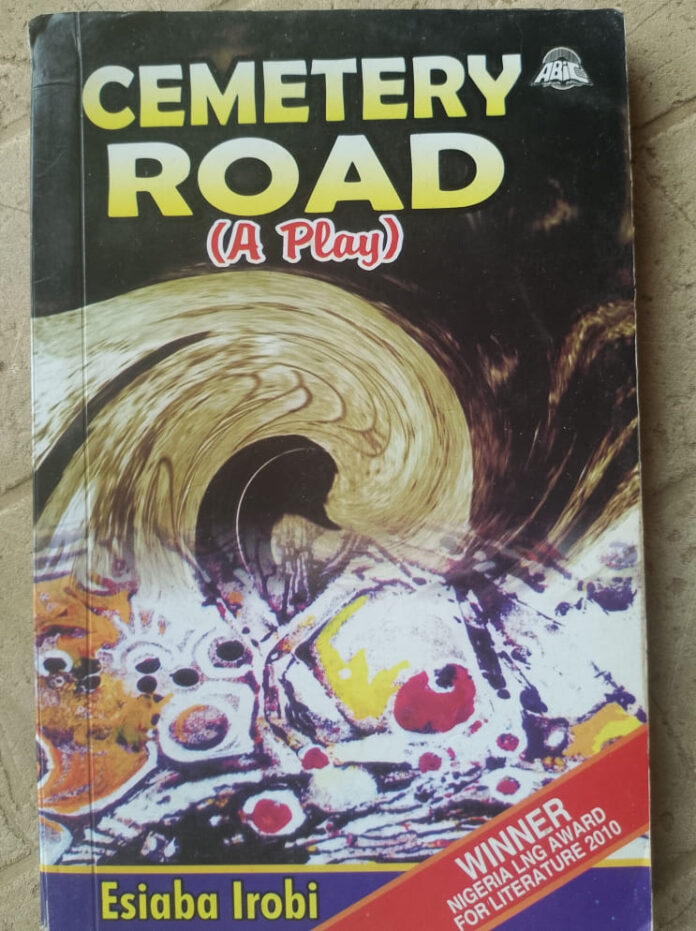


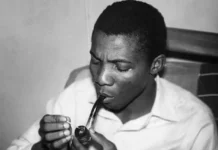




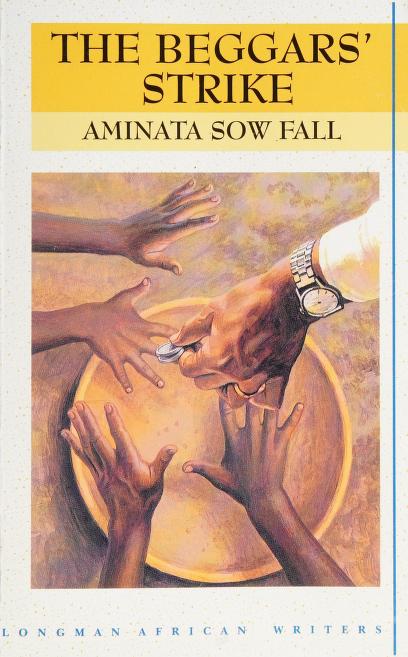


[…] 2010 NLNG Prize for Literature, Nigeria’s biggest literary award, for another of his play, Cemetery Road. Nwokedi is a rehearsal for revolution. A bold, terrifying vision of what might happen when youth […]